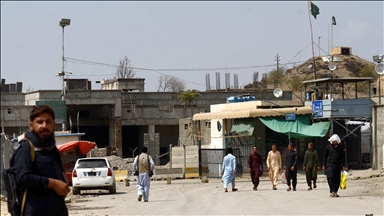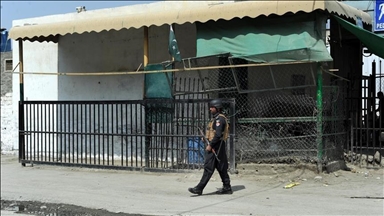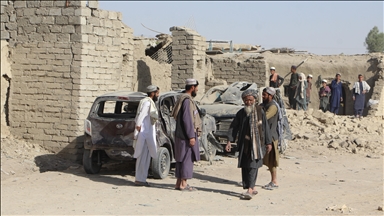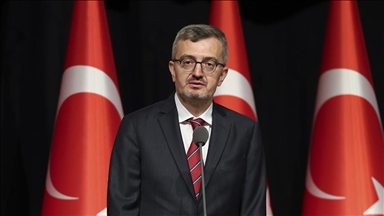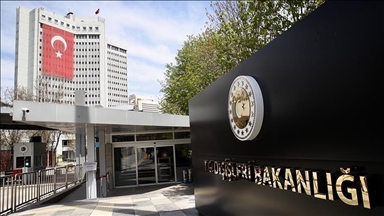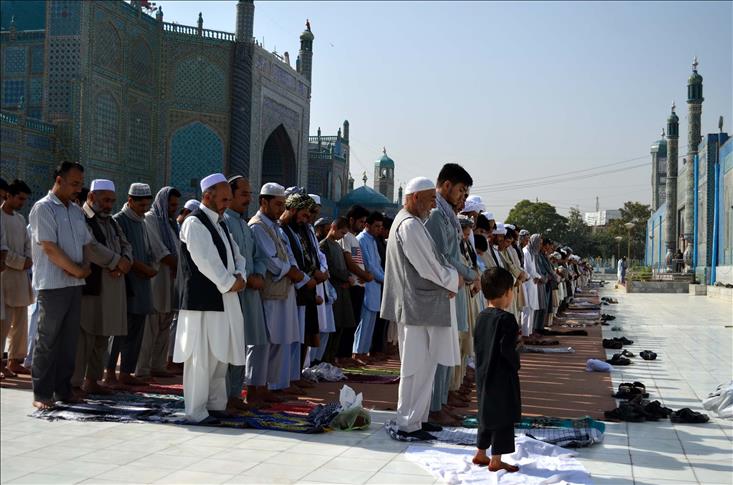
By Shadi Khan Saif
KABUL
Afghanistan's government has decided that mosques, and in particular the weekly Friday prayers, are the place to counter the Taliban and it's violent representations of Islam.
A new plan from the religious affairs ministry pitched the idea of using the Friday sermon, listened to by thousands at each mosque, as the place to spread a co-ordinated message of peace and reconciliation.
The proposal presented to President Ashraf Ghani this week by the Religious Affairs Minister Faiz Mohammad Usmani underlined the need to regulate the state-owned mosques and to keep close contact with the prayer leaders, or Imams, on a regular basis.
“The respected Imams would receive suggestions about topics for Jummah [Friday] prayer through mobile messages, this step is to ensure unity among the masses and spreading the right message of Islam,” Usmani said.
Though mosques in Afghanistan are generally closely regulated, unlike neighboring Pakistan, there have been instances when Imams or Khatibs, whose responsibility it is to deliver sermons, on the government payroll have stoked anti-government sentiments.
In a bid to win the religious community’s confidence, Usmani also vowed the creation of 700 new posts for Islamic scholars and for the existing 4,426 contracted posts to be converted into permanent positions, to ensure the stability of religious projects.
“No religious scholar will be working on a contract basis anymore, we will ensure their permanent place in the ministry,” he said.
In the eyes of some observers, there is very thin line between taking the mosques on board and curbing their freedom of speech.
“I hope they do not have the idea of controlling the mosques as it is done in some Gulf countries, the freedom of speech must not be compromised,” said Ajmal Hodman, a Kabul-based human rights activist.
The veteran activist stressed that the privileged individuals with access to the Minbar, the elevated point in a mosque form where sermons are delivered, must also respect the constitution and not undermine the laws that grant them freedom of expression.
He said that an estimated 100,000 mosques across the country were beyond the government's control.
“These mosques, wherever they are, must be taken back on board for the greater good of the society,” Hodman said.
Some leading religious figures have however welcomed the plan, including Dr. Maulana Ayaz Niazi, a scholar and graduate of Egypt's renowned Al-Azhar university.
Talking to Anadolu Agency at the Wazir Akbar Khan mosque in Kabul, Niazi said many aspects of the new strategy were actually longstanding demands of Afghanistan's religious scholars.
“We would like a council of Ulema [religious scholars] to be setup and let this body deliberate on the Friday sermon topics and communicate with the prayer leaders across the country,” said Niazi.
He stressed the important of including religious figures in the process, so that Afghans do not begin to question whether the government is interfering in religious affairs only for its own political gains.
“It is absolutely true that some prayer leaders, due to negligence and other reasons, tend to deliberate on sentimental and provocative issues that has nothing to do with peoples everyday life," said Niazi. "We ought to educate and enlighten our brothers and sisters about the true teachings of Islam in a very friendly and humble manner.”
Khalid Pashtune, a parliamentarian from the southern Kandahar province, once the seat of the Taliban government, supported the new strategy but added that government must ensure security for the religious leaders.
“No one can deny the authority and wisdom of the Imams and Khatibs in Afghanistan and the situation on the ground favors the government because after numerous attacks on mosques and other religious gatherings, many religious leaders have realized that the fight in Afghanistan is not for the cause of the religion,” he said.
Anadolu Agency website contains only a portion of the news stories offered to subscribers in the AA News Broadcasting System (HAS), and in summarized form. Please contact us for subscription options.


